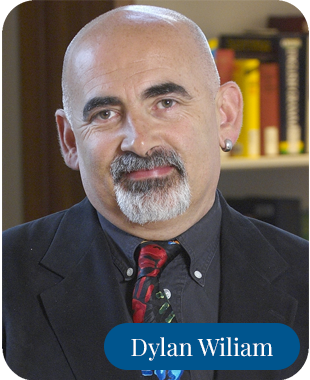 |
|
| Overview: |
| International schools have historically proclaimed their multilingual identities in terms of how many nationalities and languages are represented in their student populations. Given current research on multilingualism, this headcount may not be a convincing indicator of effective policies, programs, pedagogy, and practices. More valid measures are the extent to which language policies capture an intent of ‘unity in diversity;’ the degree to which inclusion translates into a reality of ‘every teacher is a language teacher;’ the provision of high-leverage pedagogy for multilingual learners; and how multilingual learners’ linguistic and cultural assets empower their identities of ‘belonging’ in a world where multilingualism is the norm. Achieving such a vision requires all school leaders, from grade leaders to principals, to take intentional action within their spheres of influence to transform schools into inclusive, multilingual spaces. These two sessions provide a framework for leadership in multilingual international schools, guiding all school leaders in developing the skills necessary for transformative leadership within a multilingual school ecology. |
| |
| Session I: |
| School leaders are called upon to navigate the opportunities afforded by the shifting linguistic landscape and to forge a school-wide multilingual ecosystem, replete with an organizational identity that recognizes multilingualism as a resource, rather than a problem to be solved. The knowledge, values, and skills needed to lead this charge are outlined in this session. |
| Session II: |
| Leaders utilize a Multilingual Impact-Effort Matrix Protocol to focus on high-impact, low-effort shifts that promote a language-as-resource orientation, characterized by asset-based thinking and concomitant with the emergence of new types of international schools, about which much is being written. |
|
| Platform, Materials, & Resources: |
| Participants will connect through the ZOOM meetings platform. They will need a laptop, headphones / earbuds, and a quiet space to be in during the synchronous sessions. All participants will be issued a link that will not be shareable with others. Participants will agree to use the video and sound functions to enable full participation. The workshop will not be recorded. Customized resource materials will be made available to participants, and responses to questions will be provided. |
| |
| Potential Audience: |
| International school grade leaders, Department Heads, coaches, and Principals |
|
| |
| About Dr. Virginia Pauline Rojas |
Virginia Rojas is semi-retired from international-school consulting in which she conducted professional training on effective programs and strategies for multilingual learners from pre-school through grade 12 for EAL specialists and classroom teachers alike.
As a former ASCD faculty member, Dr. Rojas uses the backwards design curriculum model to help teachers design high-challenge, high-support learning experiences for strengthening multilingual learners' second language proficiency and academic achievement.
She provided professional development trainings, job-embedded coaching and demonstration lessons, and conducted linguistic audits of EAL (English as an Additional Language) program. She has worked in over 350 international schools throughout the world as well as with school districts in the US and Canada.
Dr. Rojas is the author of Strategies for Success with English Language Learners: An Action Toolkit for Classroom and ESL Teachers published by ASCD (2007) and of Educating English Language Learners: Connecting Language, Literacy, and Culture (2010), ASCD DVD Series. In partnership with the PTC, Dr. Rojas is the architect and lead faculty of the PTC EAL certification program. |
| |
| About Jacob Huckle |
| Jacob Huckle is Head of Multilingual Learning & Language Development at an international school in China. He has led his school to become a certified Language Friendly School and to achieve accreditation with the Bell Foundation for exceptional EAL provision. Alongside his work in school, he is studying part-time for a Doctorate in Education, focused on multilingualism and interculturality in international schools. His writing on these topics has been published as book chapters and articles in a range of publications. He has partnered with various organizations to deliver presentations, facilitate workshops, design professional learning experiences, contribute to school accreditations, and develop curriculum. He is passionate about transforming international schools to become inclusive and equitable communities that intentionally leverage linguistic diversity to enrich learning and promote belonging for all. |
|
| Dates & Timings |
March 4th & 11th, 2026
4th March 2026
New York 6:00 am | London 11:00 am | Zurich 12:00 pm | Dubai 3:00 pm
India 4:30 pm | Hong Kong 7:00 pm | Melbourne 10:00 pm
11th March 2026
New York 6:00 am | London 10:00 am | Zurich 11:00 am | Dubai 2:00 pm
India 3:30 pm | Hong Kong 6:00 pm | Melbourne 9:00 pm
Each Session is for 2 hours
Note: This workshop will not be recorded
Please click here to check your time for the workshop |
| Investment |
USD 400
Includes: Certificate of Participation for 5 Professional Development Hours. |
 |
|
|
| Upcoming Workshops |
 |
| Artificial Intelligence: How it will-and won’t-change Education |
| What every teacher needs to know about artificial intelligence. |
 March 3rd, 5th, 17th, 19th & 31st, 2026 March 3rd, 5th, 17th, 19th & 31st, 2026 |
 USD 600 Closing Date 1st March 2026 USD 600 Closing Date 1st March 2026 |
|
 |
|
| |
| |
| |
|
|
|
|

